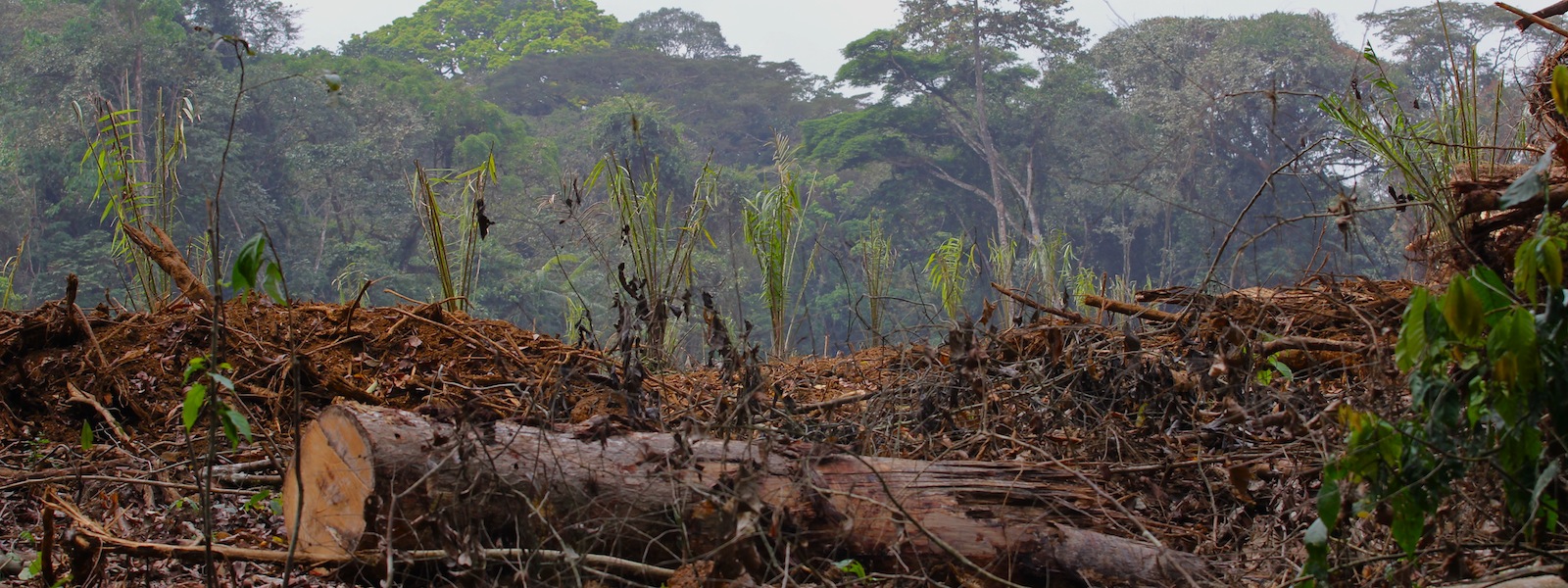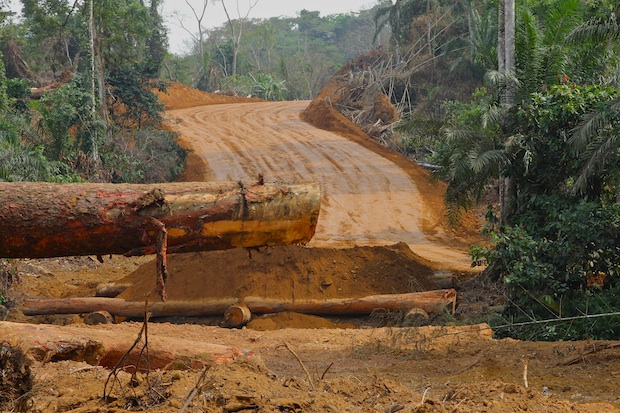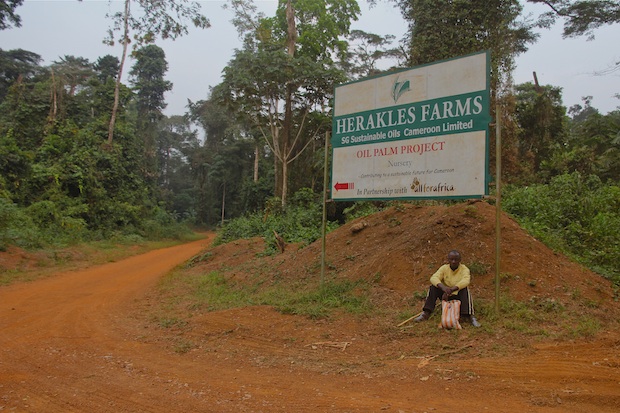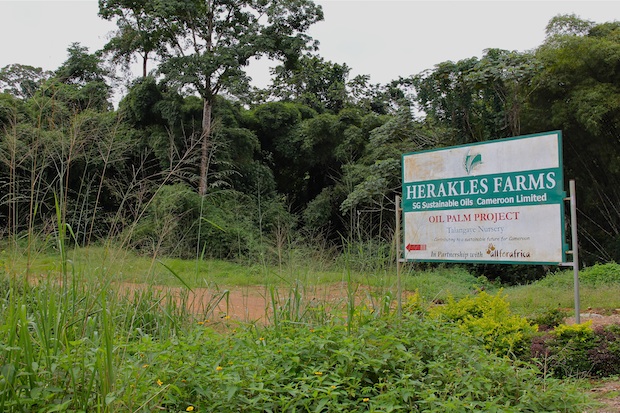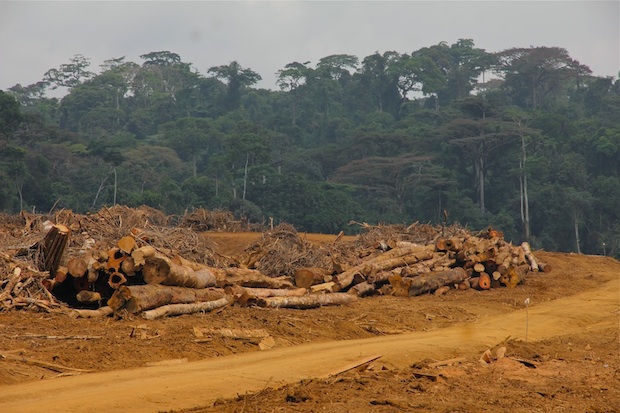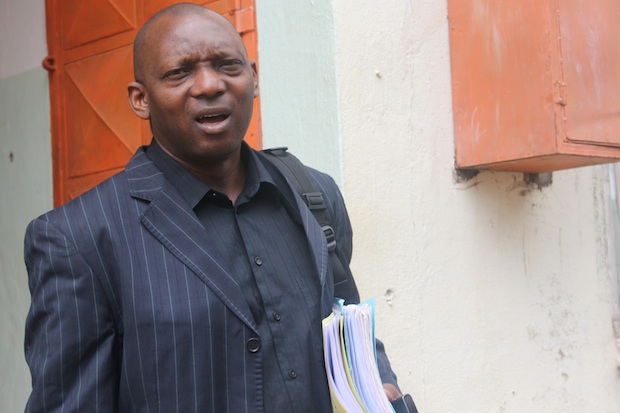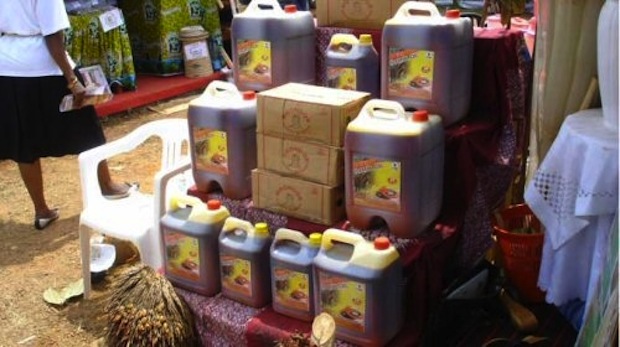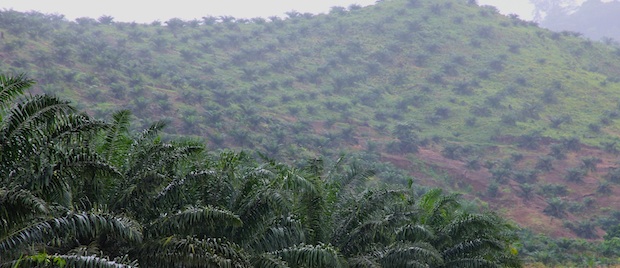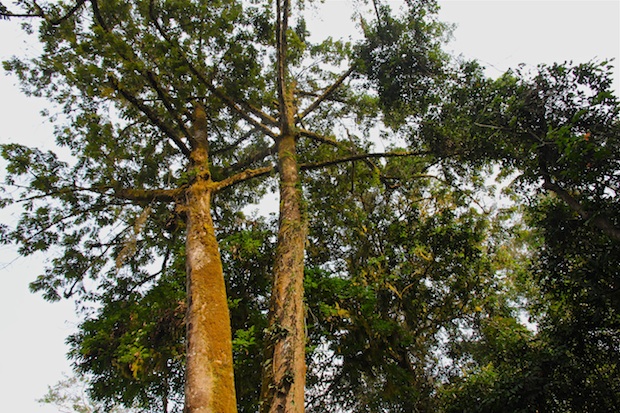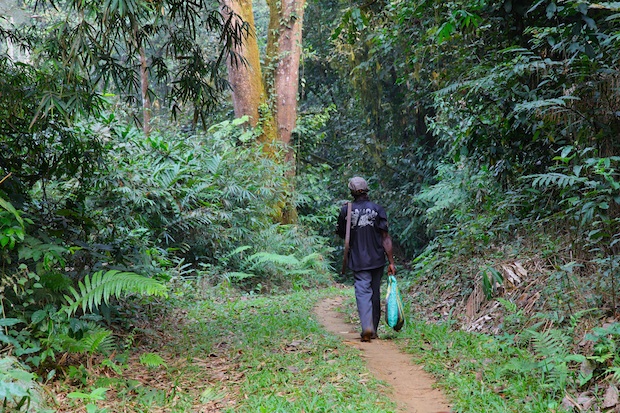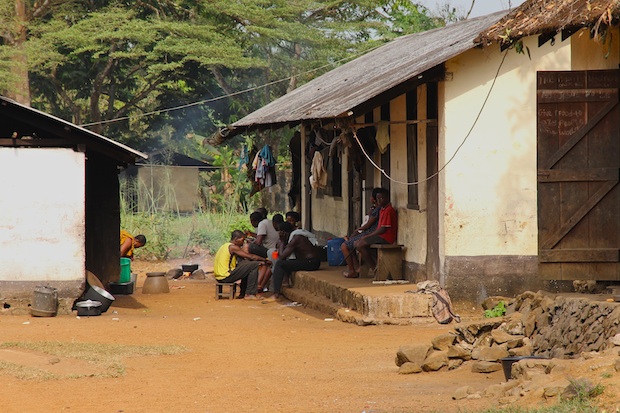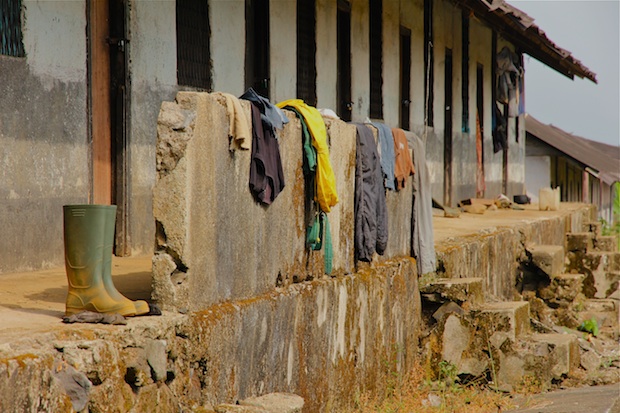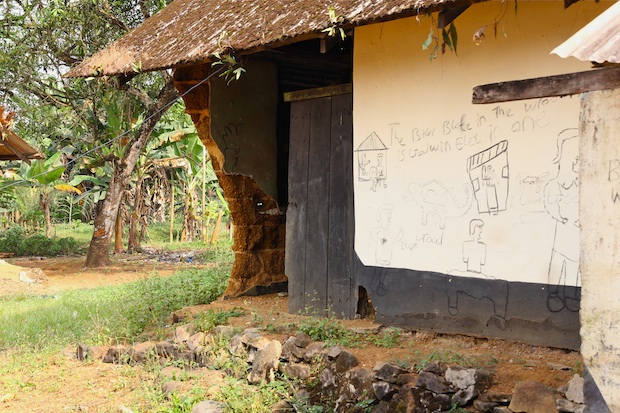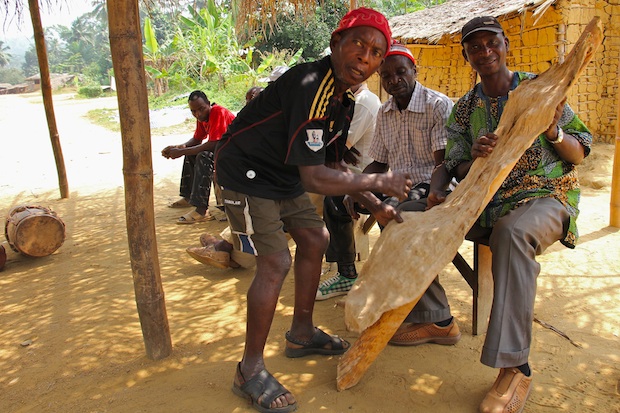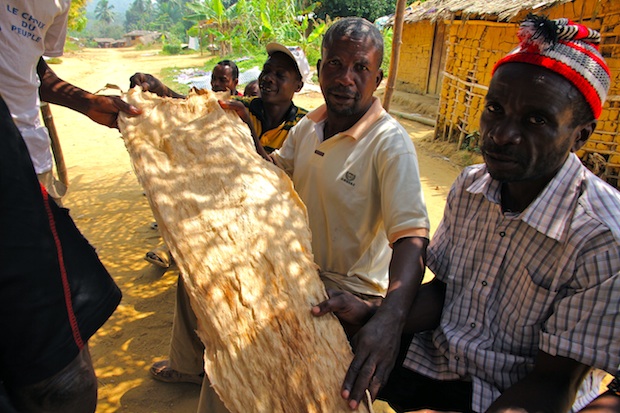Recent news out of Yaounde suggests that the Cameroonian government plans to review and revise the controversial contract (“Establishment Convention”) that granted the U.S. private investment firm, Herakles Farms, a 73,000 hectare concession in the Southwest Region.
According to press agency ECOFIN, the original contract will be nullified and replaced with a new contract. The article, posted below, points to numerous problems with the original contract. This latest development raises a host of questions, including how exactly the government will “nullify” the contract. If Herakles Farms does not agree to changes in the contract, the government of Cameroon would have to prove either that the company is violating the terms of the contract or that the contract involved corruption — a potentially long and extremely costly process.
Le Cameroun annule la première convention signée avec Herakles Farms
vendredi, 21 juin 2013 14:10
(Agence Ecofin) – Le projet de l’entreprise SG Sustainable Oils Cameroon PIC (Sgsoc), filiale de l’américaine Herakles Farms au Cameroun, qui envisage de créer une palmeraie au Cameroun va être réexaminé point par point et la première convention signée avec le gouvernement camerounais ne sera plus considéré et n’aura plus aucune valeur, a confié à l’agence Ecofin le 12 juin dernier, le ministre de l’Agriculture, Essimi Menye. « Je ne connais pas tout ce qui a été signé avant. Tout sera désormais renégocié dans les règles de l’art », a confié à l’agence Ecofin le ministre qui s’est saisi du dossier.
Contrairement à ce qui a été dit ou présenté par le passé par l’entreprise, le projet d’Herakles Farms ne s’étendra pas sur 73 000 ha, mais sur 20 000 ha. « Les responsables d’Herakles Farms sont venus d’eux-mêmes me voir la semaine dernière (semaine du 03 au 07 juin, ndlr) avec leur business plan. Un business plan dans lequel ils faisaient ressortir qu’ils ont un projet de palmeraie sur une superficie de 20 000 hectares. Ils sont venus me présenter leur projet et les zones qu’ils veulent exploiter et même les propriétaires des terres qui ont accepté de leur céder leurs terres. Donc, ce n’est pas le ministre de l’Agriculture qui a demandé qu’Herakles revoie à la baisse la superficie de son projet. Ils sont venus me voir afin que je donne mon OK pour ce projet. Et je leur ai dit qu’on va le faire, mais qu’on va revenir point par point sur les conditions de la convention », explique Essimi Menye.
Le ministre ne veut pas comprendre qu’il y a une convention qui a été signée par le passé. Interrogé sur le coût de location des terres dont l’hectare était cédé à 500 Francs CFA dans la première convention, le ministre dit que tout sera revu. « Je vous dis que je ne connais pas tout ce qui a été signé avant ou tout ce qui était fait avant. Le projet vient d’arriver sur ma table et nous allons l’examiner point par point avant de signer une convention ».
Contacté par Ecofin pour confirmer ces affirmations, Herakles est longtemps resté muet, refusant de donner un commentaire à ces affirmations. Joint à nouveau hier, 20 juin 2013, par Ecofin, le responsable de la cellule de la communication d’Herakles Farms au Cameroun est resté sur la même position, déclarant que l’entreprise américaine ne peut réagir pour le moment. « Nous sommes encore en négociation avec le gouvernement camerounais. Nous ne pouvons faire aucun commentaire sur les déclarations du gouvernement », a-t-il déclaré en promettant de nous contacter quand Herakles décidera enfin de communiquer.
Au ministère de l’Agriculture et au ministère des Forêts et de la Faune, sous anonymat, des responsables s’accordent à dire que la première convention signée avec Herakles Farms été signé par des personnes qui ne connaissaient pas l’agriculture, les forêts et l’importance de la terre.
Non à l’enlèvement du bois
C’est le 17 septembre 2009 que l’entreprise américaine avait signé avec le gouvernement camerounais représenté par le ministre de l’Economie, du Plan et de l’Aménagement du territoire, Louis Paul Motazé, une convention. Mais, ce projet est toujours controversé, même au sein du gouvernement camerounais.
« Le problème avec ce projet, explique Essimi Menye, c’est qu’ils voulaient que le bois enlevé sur la surface leur appartienne. C’est à ce moment que le ministre des Forêts et de la Faune leur a dit ’’Non’’. Le bois enlevé sur la surface ne leur appartient pas. Ils veulent juste créer une plantation. » « Figurez-vous qu’ils voulaient même s’accaparer du sable, pas seulement du bois », révèle le ministre.
Il y a trois semaines, le ministre des Forêts et de la Faune, Philip Ngole Ngwese, a publié dans la presse camerounaise un communiqué indiquant que « la signature le 17 septembre 2009 d’une convention entre le gouvernement du Cameroun représenté par le MINEPAT et la société SGSOC pour la mise sur pied d’une grande plantation industrielle de palmiers à huile et d’une raffinerie sur la superficie de 73 086 hectares dans les départements du Ndian et du Koupe-Manengoumba, n’exemptait pas ladite entreprise du respect de l’ensemble des procédures et contraintes environnementales liées à la mise en œuvre d’un projet de cette envergure, notamment celles relatives aux enlèvements de bois dans le périmètre ».
Suspension d’abattage du bois
En novembre 2012, Philip Ngole Ngwese avait autorisé l’entreprise américaine à effectuer une coupe de sauvetage sur une parcelle de 2 500 ha près de Talangaye. Le 22 avril dernier, le ministre des Forêts, constatant que l’entreprise américaine n’avait pas encore respecté tous les règlements et lois en vigueur, avait suspendu l’abattage des arbres sur le site du projet à Talangaye, dans l’arrondissement de Nguti, dans la région du Sud-Ouest.
Mais, le 29 mai, Philip Ngole Ngwese, est revenu sur sa décision, contre toute attente. Dans une lettre adressée au directeur général de SGSOC dont Ecofin s’est procurée une copie, le ministre écrit : « J’ai l’honneur de vous faire connaitre que la mesure suspensive de l’autorisation d’abattage des arbres sur le site de votre projet agro-industriel sis à Talangaye, arrondissement de Nguti, région du Sud-Ouest, édictée par ma correspondance susvisée, est levée à compter de la date de la signature de la présente dépêche ».
La lettre poursuit avec des indications importantes : « Je vous rappelle à cet égard que les opérations d’abattage doivent se dérouler conformément aux lois et règlements en vigueur, sous la supervision du délégué régional des Forêts et de la Faune du Sud-Ouest ». Cette seconde phrase de la lettre du ministre est un piège, car finalement le ministre n’autorise pas formellement Herakles Farms à poursuivre ses travaux. C’est en effet ce qu’explique à Ecofin un cadre du ministère des Forêts et de la Faune (Minfof). « Le ministre des Forêts précise que pour les opérations d’abattage il faut que la réglementation soit respectée. La réglementation stipule par exemple qu’avant tout abattage, il faudrait obtenir une Autorisation d’enlèvement de bois abattus (AEB). Et c’est le ministre qui délivre ce document. Or, le ministre n’a pas encore délivré toutes les autorisations à Herakles Farms. Ainsi, suivant cette lettre, le délégué régional avant de donner le Ok pour l’abattage des arbres va demander à SGSOC de lui indiquer s’il a rempli toutes les procédures. Donc, HeraKles Farms ne pourrait pas reprendre ses travaux s’il ne se conforme pas à la réglementation », explique notre source au Minfof.
Pourquoi ce quiproquo dans les autorisations et les suspensions qui se succèdent ? Ecofin a appris que le ministre aurait signé cette lettre levant la suspension d’abattage des arbres sur instructions de sa hiérarchie, à la suite des pressions que l’entreprise américaine aurait exercé sur des hauts fonctionnaires.
Riposte des Ong
Des Ong nationales et internationales n’ont pas cessé de dénoncer le projet d’Herakles Farms au Cameroun. Selon Ludovic Miaro III, le coordonnateur régional du Programme palmier à huile du WWF en Afrique centrale explique dans un communiqué que « d’un côté, nous avons une entreprise qui opère, sans autorisations légales, sur des terres publiques, en violation flagrante des normes sociales et environnementales nationales et internationales. Il s’agit de facto d’un acte d’accaparement illégal des terres par Herakles Farms ».
« Si le projet continue, prévient pour sa part Samuel Nguiffo du Centre pour l’environnement et le développement (CED) qui a d’ailleurs demandé au gouvernement américain d’enquêter au Cameroun sur les pratiques d’herakles, les communautés locales qui dépendent de leurs terres traditionnelles et de la forêt pour leur subsistance seront expropriés, avec des conséquences négatives certaines, qui se traduirons par une augmentation de l’insécurité alimentaire et une instabilité sociale ». Avis.
